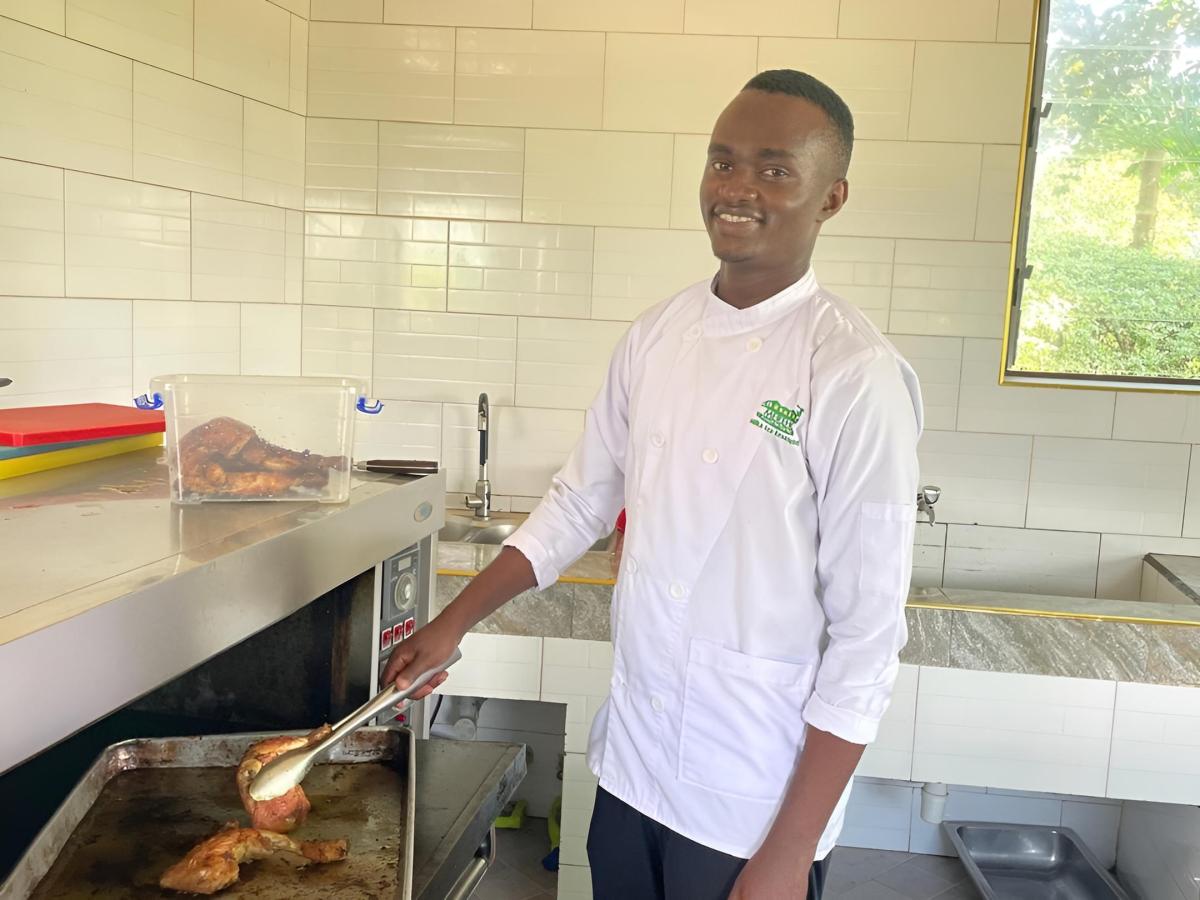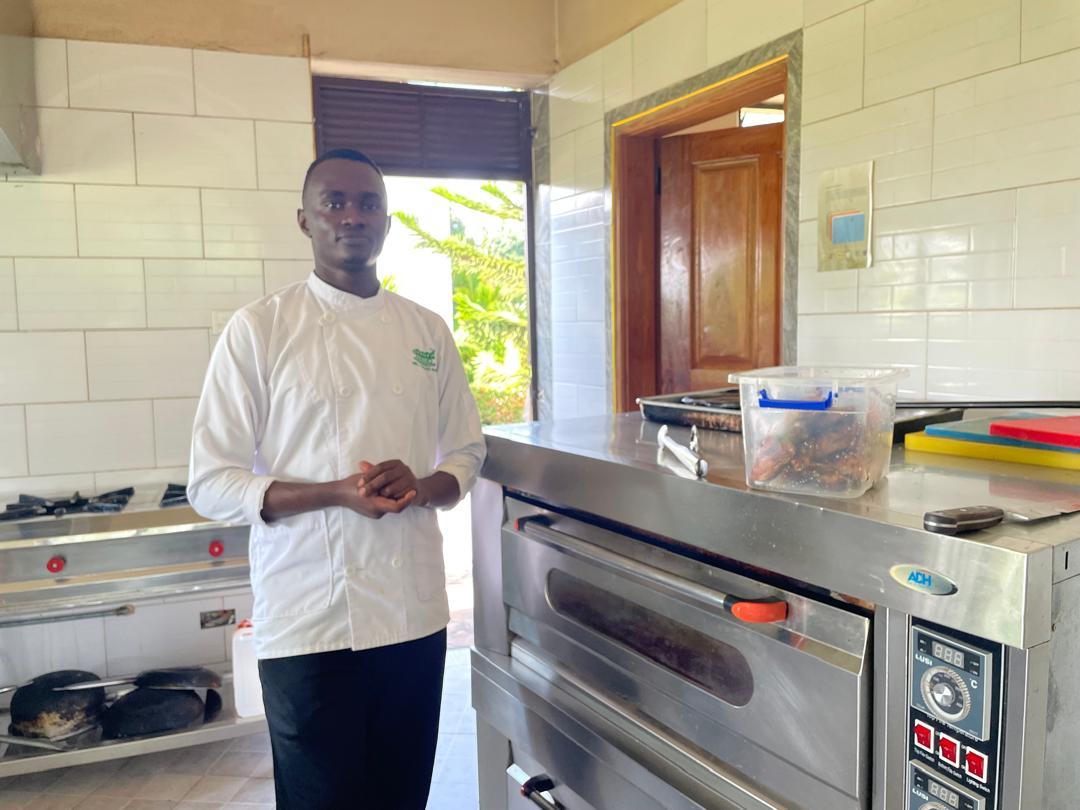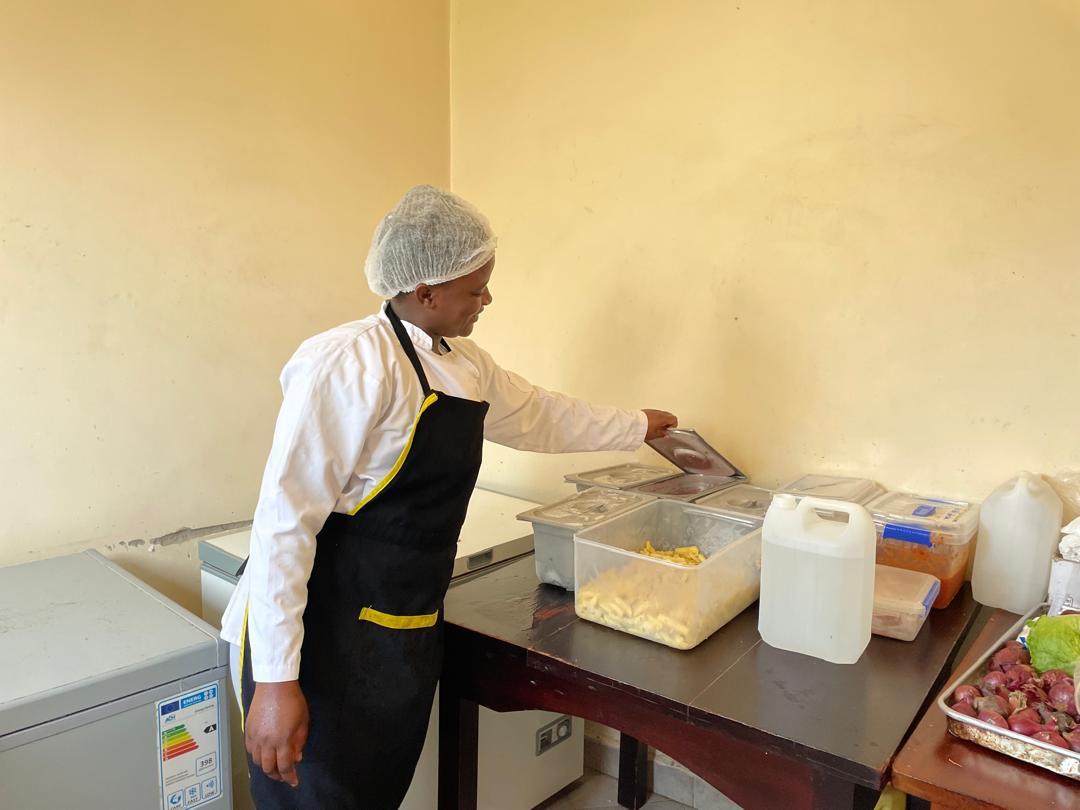Two youths from Uganda find hope in a kitchen
When Harriet Katusabe and Donasiye
Ndayishimiye heard about Enabel’s Work Readiness Programme early this year
through their friends, they didn’t know it would mark the beginning of a new
chapter in their lives. Both had completed their studies but were struggling to
find meaningful employment. Donasiye, commonly known as Don had just finished
his certificate course in ICT, while Harriet had trained in catering, but they lacked
real workplace experience. The opportunity to apply online for a programme that
connects young people to private-sector employers felt like a lifeline. They
applied, were called for a short pre-placement training, and soon after, they
were invited to Mika Eco resort Hotel in Hoima for a six-month placement.
For the first time, they were stepping into a
professional kitchen where theory met practice. Harriet joined the main
kitchen, while Don was placed in the poolside section. Their first days were
filled with excitement and adjustment as they learned to handle the fast-paced
rhythm of hotel work. “At school, we used to cook small portions,” Harriet
recalls with a smile. “But here, I’ve learned to prepare food for more than a
hundred people a day. It’s busy, but I’ve gained so much experience.”
At Mika, Harriet’s duties range from buffet
preparation during large bookings to assisting with breakfast and dinner
service. She has learned to manage morning and evening shifts, coordinate with
senior chefs and plan meals efficiently. Don’s work is equally dynamic. At the
poolside kitchen, he handles fast foods— preparing ingredients in advance for
smooth service. “We prepare rice, fish and other dishes so that when orders
come, we can serve quickly,” he says. Through the placement, Don has learned to
prepare both local and international cuisines, including Chinese, Indian and
other continental dishes. “I joined because I wanted to gain more skills,” he
adds. “Now I can cook different foods and work confidently in a kitchen.”
The Head Chef at Mika Hotel, David Muramuzi speaks proudly of
the duo’s performance. “They are good people,” he said. “Both Don and
Harriet work in the kitchen, and they have shown great potential. We could see
that they came ready for work — good attitude, disciplined and willing to
learn. That is very important in this profession.” He explained that they were retained
because of their strong work ethic. “You can see the potential in them. In five
years, they will be very strong professionals,” he remarked confidently.
Harriet and Don say the experience has taught
them teamwork, communication and time management. They have also learned pastry
and bakery skills, which Harriet plans to build on in the future. “I’ve learned
to bake cakes and make pastries,” she says. “I want to open my own bakery one
day.” Don hopes to start a small food business once he saves enough money,
though he admits that finances are his biggest challenge for now.
Both agree that the Work Readiness Programme
has changed their lives. It has given them a chance to gain experience, develop
professional habits and set future goals.
Harriet and Don encourage other young
people to apply for the programme. “We are lucky,” they say. “This programme
gave us a chance to work, learn and dream again.”
Enabel
implements the Work Readiness Programme under the WeWork project, which
aims to create green and decent jobs for youth in Uganda. The programme is a
continuation of the Skills, Attitude, Governance and Anti-Corruption project,
which transitioned over 1,000 young people into employment before it
closed last year. Because of its success, the Work Readiness Programme was
integrated into the WeWork project.
The Work Readiness Programme equips young
people with essential soft skills, connects them to private employers for
hands-on training and ensures their transition into decent and productive
employment.
Latest news from this project
No news



